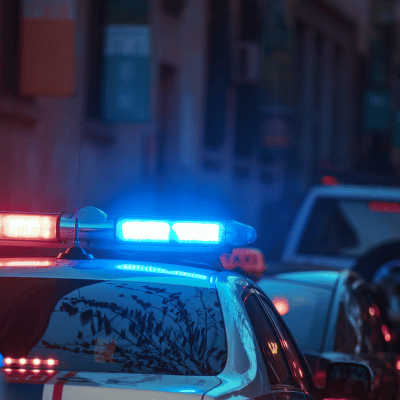Eugenia Cooney, a YouTuber with millions of followers, has built a career through her bubbly personality, fashion content, and unique presence online. Yet, for years, her health has overshadowed her content. The visible toll of her eating disorder has sparked widespread concern and criticism—not just of Eugenia, but of her mother, who is frequently nearby.
At the center of the conversation lies a powerful question: what responsibility do parents bear when an adult child is spiraling into a life-threatening illness? Beyond ethics and emotion, the issue carries potential legal consequences, particularly if a parent is seen as failing to act or, worse, enabling harm.
In Florida, two statutes—the Baker Act and the Marchman Act—provide mechanisms for involuntary intervention in situations where someone cannot or will not seek help. These laws highlight the state’s recognition that autonomy has limits when life itself is in jeopardy. Understanding them, and the broader legal context, can shed light on the responsibilities facing families like Eugenia’s.
Parental Responsibility in Adult Health Crises
When children are minors, the law is crystal clear: parents have a legal duty to provide food, shelter, medical care, and protection from harm. Failure to do so can result in charges of neglect, abuse, or even homicide if a child dies due to inaction.
With adults, the situation becomes murkier. Once a child turns 18, parents are no longer legally obligated to provide care. However, when an adult child is dependent—financially, physically, or emotionally—courts have sometimes found that parents or guardians may bear responsibility if their actions, or lack thereof, directly contribute to harm.
In Eugenia’s case, her mother’s proximity and involvement in her daily life have led many to question whether she carries a de facto duty of care, even though her daughter is legally independent.
The Baker Act: A Tool for Emergency Mental Health Intervention
The Baker Act, enacted in Florida in 1971, allows for the involuntary psychiatric examination of an individual who appears to be a danger to themselves or others due to mental illness.
Key Features:
- Individuals can be held for up to 72 hours for evaluation.
- The petition can be filed by family members, law enforcement, doctors, or mental health professionals.
- The criteria include refusal of voluntary treatment, inability to make rational decisions, or immediate risk of serious harm.
For someone with severe anorexia, the Baker Act could apply if their condition placed them at imminent medical risk. The goal is not punishment, but creating a window of intervention where medical professionals can assess and stabilize the patient.
The Marchman Act: Substance Abuse Intervention
The Marchman Act is Florida’s legal framework for involuntary assessment and treatment of substance abuse. It allows family members to petition the court when a loved one cannot recognize the severity of their addiction.
Though it does not apply directly to eating disorders, the Marchman Act underscores a broader principle: the state has recognized that some illnesses so severely impair judgment that intervention becomes necessary, even without consent.
Both Acts reveal that while autonomy is valued, it is not absolute when life and safety hang in the balance.
Why Families Fail to Use These Laws
Despite the availability of these legal tools, many families hesitate to act. Reasons include:
- Fear of estrangement: Parents worry about permanently damaging their relationship with their child.
- Hope for voluntary change: Families may believe their loved one will eventually “see reason.”
- Stigma: Mental health interventions carry heavy societal judgment, especially in public families.
- Complexity: The process requires petitions, hearings, and proof—barriers that can overwhelm already stressed families.
Yet waiting too long can mean the difference between life and death.
Legal Ramifications if Eugenia Were to Pass Away
The most sobering question is this: what happens if Eugenia’s illness proves fatal? Could her parents face legal consequences for not intervening?
1. Criminal Neglect and Manslaughter
In cases involving minors, parents can—and often do—face charges of criminal neglect or even manslaughter when a child dies due to preventable medical conditions. While Eugenia is an adult, prosecutors could still consider charges if they believed her parents contributed to her decline.
For example, if her mother were found to have:
- Discouraged treatment or blocked access to medical professionals.
- Enabled destructive behaviors (by providing food, finances, or platforms that sustain the disorder).
- Ignored clear warnings from doctors or authorities about life-threatening risks.
- In such circumstances, prosecutors might argue that her actions amounted to reckless disregard for life—a standard that can lead to manslaughter charges.
2. Wrongful Death Claims
If Eugenia were to die, her estate or other parties could bring a wrongful death lawsuit against her parents. Wrongful death is a civil action, not criminal, and typically requires showing that negligence contributed to the death.
In this scenario, a plaintiff could argue that her mother’s failure to act—despite obvious signs of medical danger—amounted to negligence. Even if the court rejected criminal charges, civil liability could still attach.
3. Historical Precedents
Cases in the U.S. have established that caretakers can be held liable when vulnerable adults die due to neglect:
In several states, parents of disabled or mentally ill adult children have been prosecuted when they failed to seek medical help, leading to preventable deaths.
Courts have also ruled that financial dependence can create a quasi-guardianship, where parents have a continuing duty of care.
Religious exemption cases, where parents refused medical treatment for adult children still living at home, have sometimes led to charges of negligent homicide.
These precedents suggest that while the threshold is high, the law does not always absolve parents once a child turns 18.
4. Public Scrutiny and Investigations
Even absent formal charges, if Eugenia were to pass away under her mother’s watch, there would almost certainly be investigations by medical examiners, social services, or even law enforcement.
The family could face:
- Civil suits from interested parties.
- Loss of inheritance rights if negligence were proven.
- Public outrage and reputational damage, which often has lasting consequences even beyond the courtroom.
The Ethical Crossroads: Autonomy vs. Intervention
Eugenia’s case underscores the ongoing ethical debate: how do we balance individual freedom against the duty to protect life?
Advocates of autonomy argue that adults have the right to refuse treatment, even fatally.
Advocates of intervention counter that eating disorders impair judgment so severely that refusal cannot be seen as informed consent.
For parents, this becomes an agonizing choice. Do they respect their child’s wishes, or do they force intervention at the risk of being resented? The law, through the Baker and Marchman Acts, recognizes that sometimes the latter is necessary.
Why This Conversation Matters Beyond Eugenia
The discussion around Eugenia Cooney is not just about one person. It reflects the experience of thousands of families dealing with eating disorders, addiction, and severe mental illness.
Her highly visible struggle has forced the public to confront questions that many families ask in private:
- How much responsibility do parents hold for their adult children?
- Are current laws sufficient to address conditions like anorexia?
- Should society expect parents to intervene, even if the child is an adult?
- These questions have no easy answers, but avoiding them only allows preventable tragedies to continue.
In Summation
The responsibility of Eugenia Cooney’s mother is not just a matter of public opinion—it is a question of ethics, law, and survival. While adults have autonomy, parents who remain deeply involved in their child’s life may face scrutiny if their inaction enables preventable harm.
The Baker Act and Marchman Act exist as tools for intervention, but they require courage to use. In some cases, failure to act can lead not only to personal guilt but also to civil liability, criminal charges, or public accountability if tragedy occurs.
Ultimately, the role of a parent in such a crisis is not about comfort—it is about making the hard choices that give a loved one the best possible chance to live. For families facing similar struggles, the lesson is clear: doing nothing is not a shield from responsibility.







